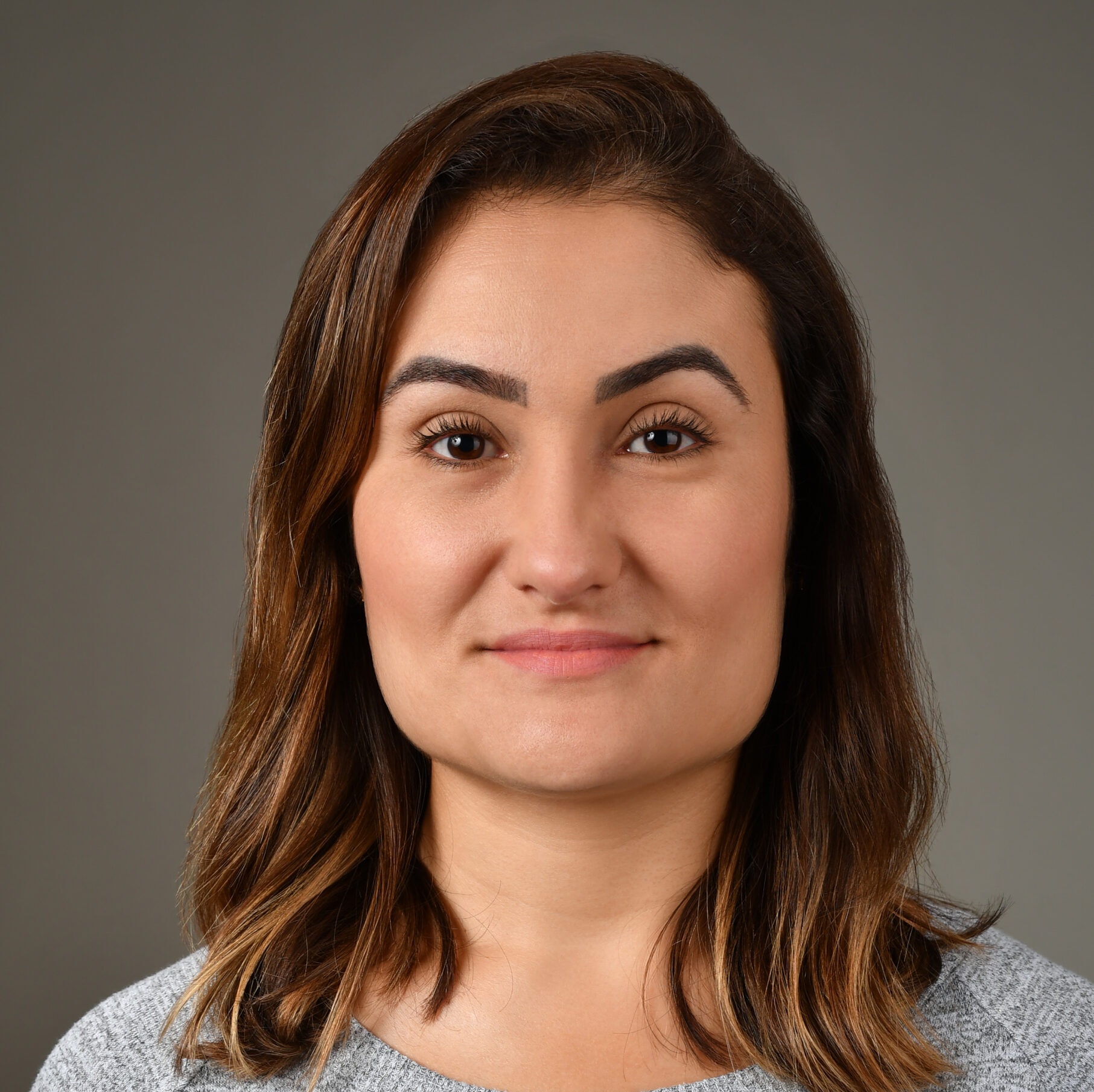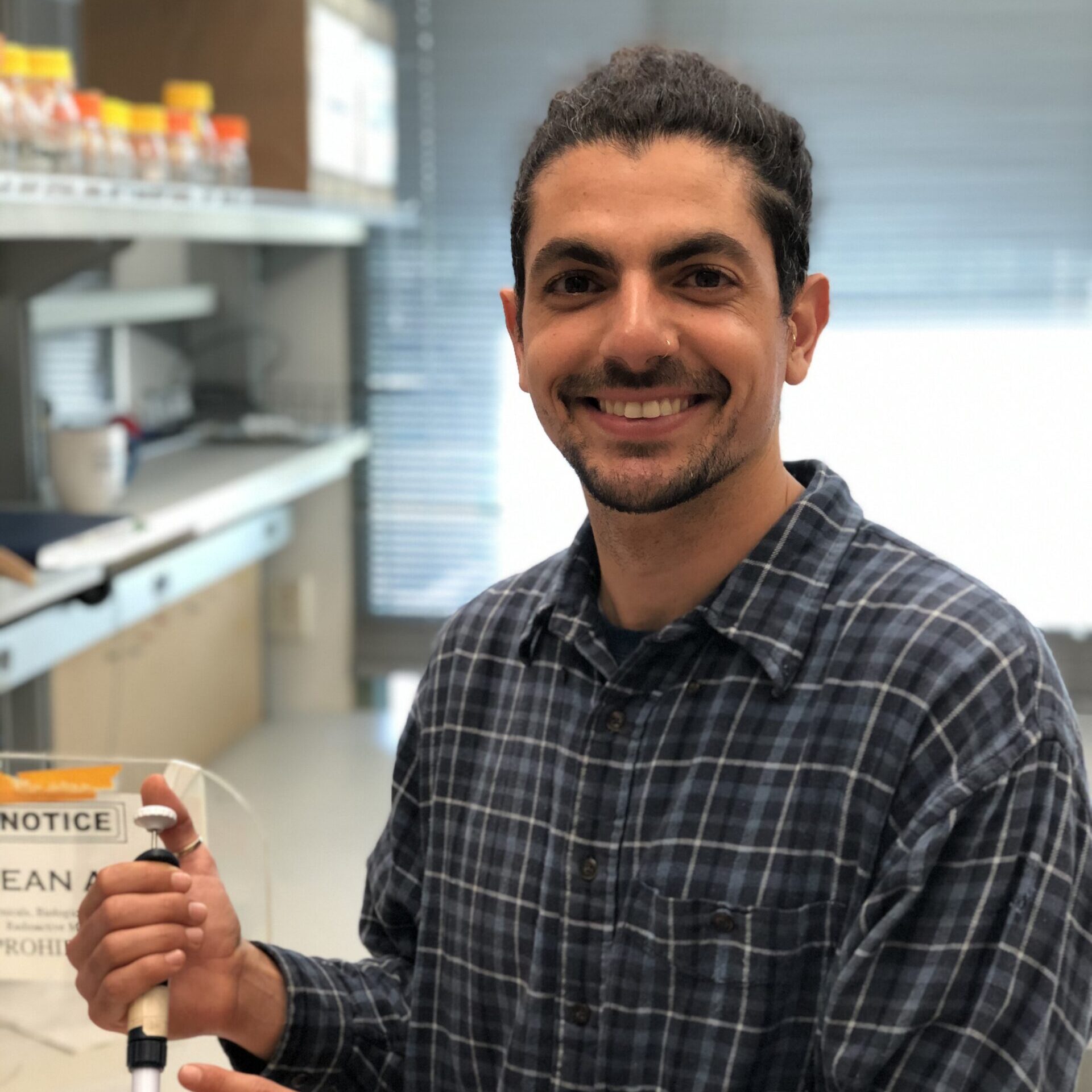
Xiangrui Zeng, PhD
Research Fellow, Massachusetts General Hospital , Drs. Diana Rosas, Bruce Fischl, and Juan Iglesias
Integrating clinical MRI and ultra-high resolution ex vivo MRI to model laminar anomaly progression in Huntington’s disease
The cerebral cortex, often referred to as the “shell” of the human brain, contains multiple layers. These layers become damaged sequentially over time in HD, but a better understanding of this process holds therapeutic potential. Dr. Zeng will work with Drs. Diana Rosas, Bruce Fischl, and Juan Iglesias to apply new AI tools to detect the shape and thickness of brain layers from existing MRI scans, towards the goal of building detailed models describing how HD progresses inside the brain.

Natalia Pessoa Rocha, PhD, PharmD
Assistant Professor, University of Texas Health Sciences Center at Houston, Dr. Erin Furr-Stimming
Olfactory dysfunction and clinical correlates in patients with Huntington’s disease
It’s common for people with brain diseases like Parkinson’s and Alzheimer’s to lose their sense of smell prior to developing debilitating symptoms. This may be the case for HD as well, but most data arise from animal studies. Dr. Pessoa Rocha will work with Dr. Erin Furr-Stimming to execute this clinical pilot that examining sense of smell over time in people with HD, alongside other clinical measurements. The main aim is to determine whether declining sense of smell tracks with the progression of HD.

Nikhil Ratna, PhD
Postdoctoral Scholar, University of Washington , Dr. Jeff Carroll
Bringing a Historical HD Brain Bank into the Single Cell Era
The HD brain bank at the University of Washington has grown to encompass a very large number of brain samples thanks to the generous contributions of people with HD and Juvenile HD. Dr. Ratna will work in the lab of Dr. Jeff Carroll to update the clinical information in the brain bank to make it more accessible to HD researchers around the world, and to conduct pilot studies with newly developed technologies that enable scientists to examine preserved brains at single cell resolution.

Roy Maimon, PhD
Postdoctoral Fellow, University of California San Diego, Mentor: Dr. Don Cleveland
Identifying Mechanisms of Adult Neurogenesis by Exploiting Single Cell Spatial Transcriptomics and Application to HD
HD leads to loss of neurons, a type of brain cell that are not naturally renewed like other cells in the body. Dr. Maimon will work in the lab of Dr. Don Cleveland to employ a genetic drug which in mice can awaken dormant support cells in the brain and convert them into new neurons. He will now test this method in human cells and organoids. The project will further generate an important map of which genes in which brain areas can best be turned on and off to facilitate a healthier brain network.
This project is generously supported by the Bev Hartig Huntington’s Disease Foundation, https://bevhartighuntingtonsdisease.com/

Thiago Macedo e Cordeiro, MD
Postdoctoral Research Fellow, University of Texas Health Sciences Center at Houston, Mentors: Antonio Teixeira, MD, PhD, and Erin Furr-Stimming, MD
Home-based TDCS for cognitive and behavioral symptoms in Huntington’s disease: a pilot feasibility and mechanistic study
Cognitive and emotional symptoms of HD, such as difficulty planning, depression, and anxiety, pose a significant burden on people with HD, and many treatments come with troubling side effects. Dr. Macedo e Cordeiro will work with mentors Antonio Teixeira, MD, PhD, and Erin Furr-Stimming, MD, to test a noninvasive brain stimulation method in an attempt to influence emotional symptoms and cognitive abilities in HD patients.

Jessica Levesley, PhD
Postdoctoral Research Fellow, University of British Columbia, Mentor: Dr. Michael Hayden
Investigation of the effect and mechanistic drivers of loss of interruption modifier variants in Huntington disease patients
Dr. Levesley will work in the lab of Dr. Michael Hayden to examine a rare set of HD brain tissue containing a DNA variation at the start of the huntingtin gene that has been linked to earlier onset of symptoms of the disease. The goal of her project is to better understand why this genetic change causes earlier onset and to find targets for future therapies to delay symptoms of the disease.

